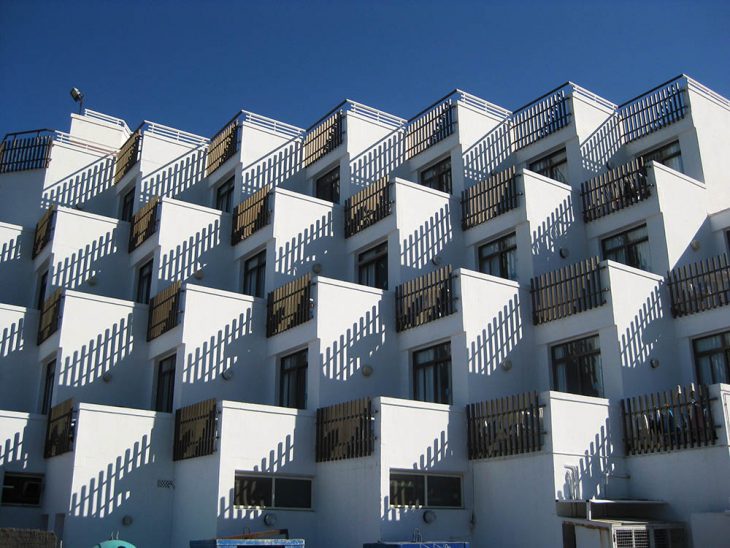
In a condominium (often referred to as a condo), some components—such as your residence—are privately owned. Others, such as common spaces, are jointly owned by all condominium owners. A condo, in a less technical sense, is an apartment that you own.
Condominiums are often in the shape of apartments or other comparable shared complexes, such as row townhouses. Nonetheless, a condo might conceivably be any shared structure.
Condos are popular in areas with high property values—vacation destinations and metropolitan areas are prime examples. This is mostly due to the unacceptably high cost of purchasing a single-family house in cities and towns where new development space may be rare. As such, condominiums have the potential to expand homeownership to whole new demographics.
Locating the Ideal Condo
Looking for a condo is similar to shopping for a single-family house. If you have a basic concept of what you’re looking for, consulting a real estate agent may be an excellent method to learn about houses that you might not discover on your own.
If you want to handle things on your own, you may explore real estate websites and listings for condominiums in the region you’re interested in. If you have a particular building or complex in mind, many have on-site sales offices where you may learn more about the condominium and even tour a display suite.
The Advantages of Investing in Condominiums
Before we get into our condo investor advice, let’s take a look at the advantages of condominium investment. As you would guess, investing in condominiums is a very profitable real estate investment strategy that provides real estate investors with a plethora of perks. The following are the primary advantages of condominium investing:
- New condominiums have far lower repair expenses than other types of investment property.
- Demand for these rental units will continue to grow as urbanization continues to spread across the country.
- Condominiums attract a huge pool of tenants due to their shared facilities. They are also cheaper than single-family houses.
- Condominium maintenance and upkeep is a straightforward procedure.
 Multiple Generations of Real Estate Investing
Multiple Generations of Real Estate Investing
There are several methods for investing in real estate. Each demands a distinct amount of owner participation. While having someone handle the property for you or your beneficiaries simplifies the procedure, it also reduces the income you may anticipate.
A single-family house is perhaps the simplest sort of rental property to maintain. Leaving behind a single single-family house that is no longer mortgaged may be a simple method for your heirs to get a mortgage for themselves that is paid monthly using rental revenue from the owned property. In certain instances, your beneficiaries may want to take possession of your house and rent it out rather than sell it.
A duplex or structure with up to four apartments is another very simple alternative. This is a more involved choice than a single-family house, but it may also be advantageous since even if one apartment is vacant, you can still generate rental revenue from the remaining unit or units to pay any liens on the property.
A building with at least five apartments is somewhat harder to manage due to the increased number of tenants. However, with more complexity comes increased investment and rental revenue options.
Once again, if one or two flats remain vacant, the building should be able to maintain itself with revenue generated by the rental units. As the property’s income flow and value improve, this sort of building may become quite a big asset to leave to your descendants.
A mixed-use property is the most sophisticated sort of rental property since it has a range of companies and maybe residential units. This sort of property is advantageous since commercial buildings in Toronto often have multi-year leases, while residential apartments typically have one-year leases. By staggering the leases, you may keep the majority, if not all, of the apartments occupied at any one moment.
Additionally, you may invest in various sorts of rental properties such as industrial spaces, self-storage facilities, and short-term rentals such as those offered via Airbnb. Consider investing in a real estate investment trust for a fully hands-off approach.
Condominiums compared – Apartments or Houses
There are several reasons why a condo may be a better match than an apartment or a single house, and one of the most obvious is financial considerations. According to the Real Estate Journal, condo prices typically grow more slowly than single-family houses, giving them a more reasonable option in hot areas. And, in contrast to renting an apartment, since you own your condo, you may deduct expenses such as mortgage interest.
To be sure, it is not entirely about the money. Condominiums also provide an appealing lifestyle option for a large number of potential homeowners. They’re particularly popular with retirees who wish to interact or make use of amenities offered by senior communities.
Additionally, living in a condominium may relieve you of some of the typical homeowner responsibilities, such as yard and exterior upkeep. Additionally, they may share attractive features such as pools, exercise centers, or tennis courts.


 Multiple Generations of Real Estate Investing
Multiple Generations of Real Estate Investing
